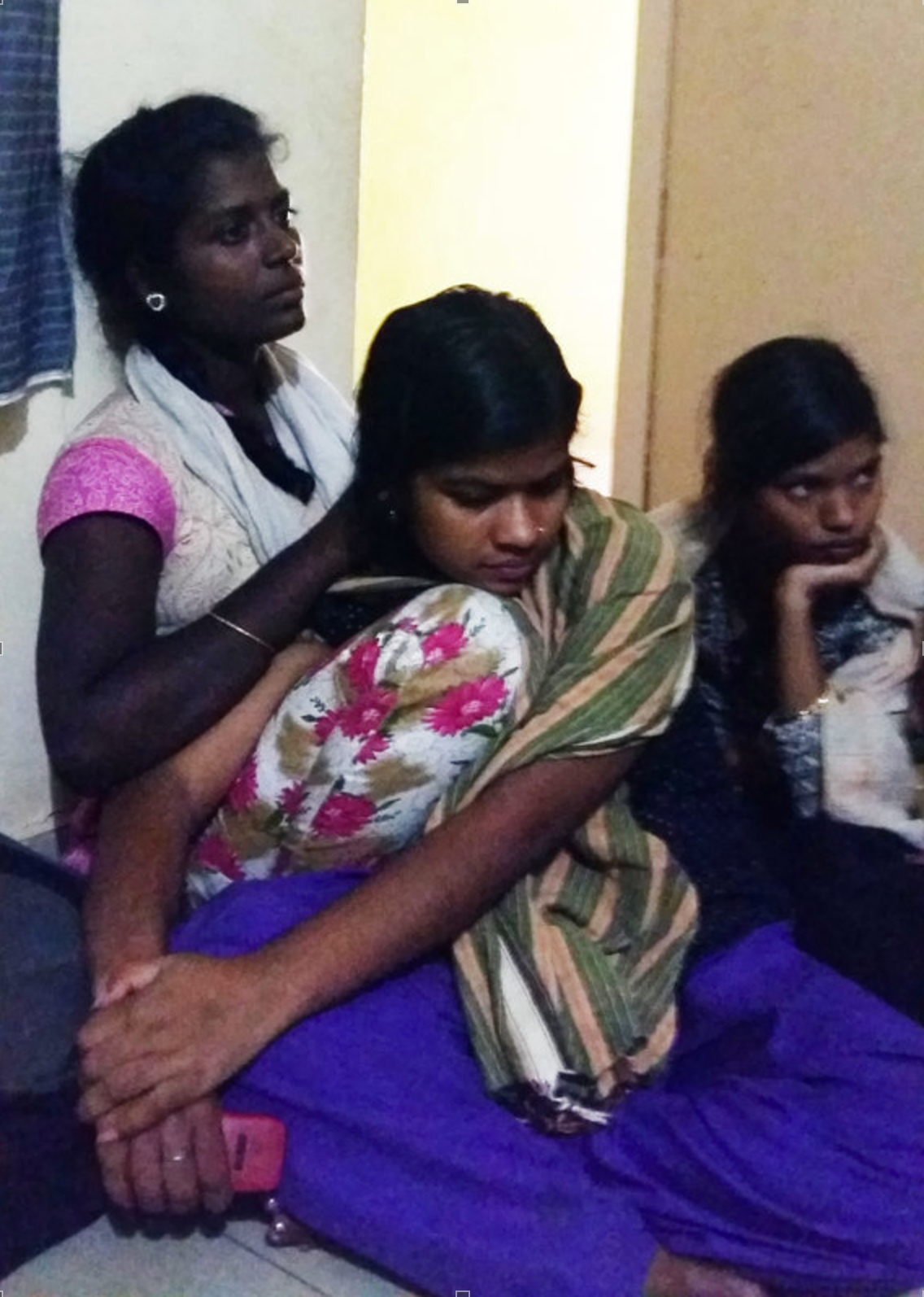
By Ellen Barry
This article first appeared in the New York Times on December 8, 2016.
BANGALORE, India — There was the usual afternoon disorder on Hongasandra Main Road: the crowd of peddlers and small-time godmen, cows nosing through piles of trash, factory workers with ID cards slung around their necks.
They did not notice Prabhati Das: the young woman of 21, very dark-skinned, walking down the lane toward a garment workers’ hostel, carrying a small backpack. In the crowd, she was easily overlooked, faint as a shadow. That was the way she liked it.
She was leaving her home, against the wishes of her mother, to become a factory worker.
Prabhati and her sister, Shashi, were the subject of a New York Times report that documented the Indian government’s efforts to place poor young rural women in minimum-wage manufacturing jobs.
The experiment has been hampered by the drag force of a conservative culture: According to a survey of trainees by a team of economists from Harvard’s Kennedy School, 80 percent of the young women placed by the government program said they liked their jobs. But just 20 percent were working a year later. The respondents said their decision to drop out was driven in part by low wages.
But the single biggest reason they dropped out was “family pressure” — in a culture that still overwhelmingly favors arranged marriage, families prefer to keep women of marriageable age at home.
In September, when I finished my reporting, Prabhati’s fate was dangling.
Sent back to the village to recuperate from a viral fever, she encountered resistance from all directions when she tried to return to her job in the city. Every time she tried to leave, the obstacles seemed to multiply. Even if she could persuade her father to pay 1,300 rupees for the ticket, who would take her to the train station? Who would guarantee her safety on the 35-hour journey? How would she find her way from the station to the hostel?
Prabhati’s mother, Radha Rani, was eager to secure her future in the old-fashioned way, by marrying her off. When Prabhati argued that she should be allowed to leave, and that she would be more useful to the family by remaining single, earning money and sending it home, Radha Rani screwed up her face as if she had eaten a lemon.
“For what reason is she saying so?” she said of Prabhati. “I do not understand. She is not earning. She cannot take care of anybody. If she did, then maybe I could take her answer seriously.”
At the beginning, Prabhati was so desperate to return to Bangalore that it was painful not to pull the money out of my bag and hand it to her. Three months later, she began to sound hazier about what she wanted. As I sat down to write the piece, it seemed clear how her story would end. An independent-minded girl, born with a kind of preternatural confidence, Prabhati was also a devoted daughter, obedient to her parents, incapable of dissembling to them. She would remain in the village.
It is always difficult to know when to end a story, though.
I was surprised to hear, in late October, that she was on a train, headed for Bangalore. She left her village without notice: There was no time for her mother to crank up a bout of hysterical crying, no time for the neighbors to stick their heads in the doorway and render opinions. By the time they realized Prabhati was going, she was already gone.
On the train platform in Bangalore, Prabhati was beaming. The bag she carried held little — a container of clarified butter, a bag of pickle, puffed rice and six garments. Her younger sister wept with happiness when she saw her, and for the next days, they seemed always to be touching: one rested her head on the other’s stomach, one picked a speck of something off the other’s arm, one had her fingers closed around the other’s wrist. They slept nested against each other on the hostel floor, a curve within a curve.
Prabhati awoke in the hostel room, which was full of sleeping women. When I asked her how she slept, she laughed and said, “How can I sleep? I spent the whole night smashing cockroaches.” But her happiness at having returned to Bangalore was unmistakable.
Months in the city had already changed these women: They loved the money fiercely. They could no longer countenance asking a husband or father every time they needed it. They wanted smartphones and laptops. They wanted other things: to marry their boyfriends, not strangers chosen by their parents, or to not marry. To marry later. To make choices. Their lives were full of question marks.
But there was one thing Prabhati, the child of a village, was certain about.
“I don’t think I’m ever going back there,” she said.
Correction: Dec. 8, 2016
A picture caption in an earlier version of this article misidentified the woman next to Ellen Barry, the South Asia bureau chief for The New York Times. She is one of the women staying in a hostel for factory workers in Bangalore, not Prabhati Das, the subject of the article.